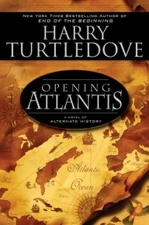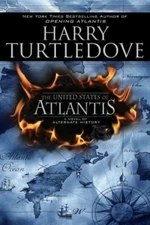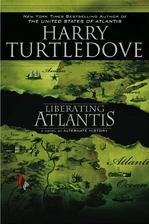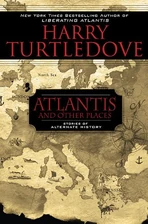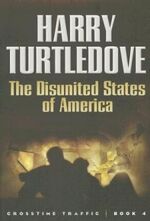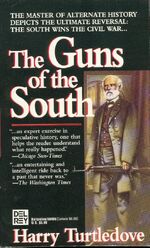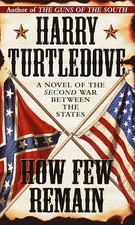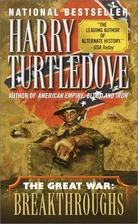| Prussia | |

| |

| |
| Country | |
| Continent: | Europe |
| Capital: | Königsberg (1525–1701) Berlin (1701-1947) |
| National Language: | German |
| Government: | Monarchy (until 1918) Republic (1918-1947) |
| Status in OTL: | Active |
Prussia was a historic state in what is now northern Germany, founded in 1525 when Grandmaster Albert of Brandenburg-Ansbach converted to Lutheranism and secularized the Monastic State of the Teutonic Knights. Albert proclaimed himself Duke of Prussia and, since Lutheran clergy were not required to remain celibate, founded the Hohenzollern Dynasty. In 1701, another Hohenzollern monarch, Frederick I, upgraded the state from a duchy to a kingdom, and claimed for himself the crown of King in Prussia (not King of Prussia, as it was feared this would be taken as a provocation against Poland, which maintained an uneasy peace with Prussia at this time despite a running border dispute). From 1772 onward, kings would indeed style themselves the Kings of Prussia.
Throughout the 18th and 19th centuries, Prussia emerged as one of the great powers of Europe, playing critical and decisive roles in many continental conflicts, such as the Seven Years' War, the Napoleonic Wars, and the Revolutions of 1848.
In the mid-1860s, Count Otto von Bismarck's aggressive foreign policy positioned Prussia as the main focus of emerging German nationalist sentiments, upstaging its only real rival for that role, Austria. With the support of the rulers of most small and mid-sized German states, Prussia formed the nucleus of German unification in 1870, creating the new nation-state of Germany and elevating King Wilhelm I to his imperial office of Wilhelm I, German Emperor. Prussia continued to exist as a constituent kingdom within the German Empire, with Hohenzollern emperors retaining the Prussian kingship. This arrangement ended in 1918 following the end of World War I, when Wilhelm II, German Emperor abdicated both his imperial and royal titles.
Following Wilhelm's abdication, Prussia proclaimed itself a Free State (ie, a democratic republic) within the Weimar Republic. Despite its history of relative authoritarianism, Prussia was actually an exemplar of democracy in between-the-wars Germany, with its state government being the only German legislature of any significant size in which pro-democracy parties enjoyed comfortable majorities throughout the period of the Weimar Republic's existence.
However, following the election of Adolf Hitler as Chancellor in 1933, Prussia was quickly converted into a totalitarian state, with a highly centralized Nazi government led by its unelected federal commissioner, Hermann Göring. This would be the final government in Prussia's 400-year history; following Germany's defeat in World War II and subsequent Allied occupation, Prussian territory was divided among three of the four occupation zones and that part of Germany that was annexed to Poland. Thus, it was not possible for Prussia to exist as a state in either East or West Germany. Following German reunification in 1990, the state was not reconstituted; today, what was once Prussian territory is divided among nine German states as well as sections of Poland and Russia's Kaliningrad Oblast.
Prussia in Atlantis[]
King Friedrich II of Prussia initiated a war in Europe with Austria, Russia, and France in the 18th century. Britain sided with Prussia. In so doing, Britain gained control of French Atlantis.
Baron von Steuben, a Prussian immigrant, was an officer in the Atlantean Army during the Atlantean War of Independence.
Prussia in A Different Flesh[]
Prussia fought a terrifying war against Russia in the 20th century.[1]
Prussia in The Disunited States of America[]
In the early 20th century, Prussia fought the Great War against the United Kingdom. As many Germans had settled in North America, several of the North American nation-states sided with Prussia during the war, leading to bloody conflict on both sides of the Atlantic Ocean.
In the late 21st century, Prussia remained the most powerful of the German states, and was one of several "great powers" in the world. Prussia and California were the only two countries to send manned missions to Mars by 2097.
Prussia in The Guns of the South[]
Prussia remained neutral throughout the Second American Revolution.
Avram Goldfarb, a Prussian native, lived in Richmond, the Confederate capital, in 1868. President Robert E. Lee summoned Goldfarb to help translate captured documents from the mysterious AWB group, which were written in a mysterious quasi-German language.
Prussia in In the Presence of Mine Enemies[]
Although Prussia had lost its status as a federal state with the rise of the Nazi Party, it still existed as a region, and remained an important historical stepping stone to the Greater German Reich.
In the Reichstag elections of 2011, the Prussian electorate split between conservative representatives and reformers.
Prussia in "The More it Changes"[]
By 1772, the Sabbateans had begun taking hold in Prussia.
Prussia in Southern Victory[]
The Kingdom of Prussia became the nucleus of the German Empire, following the victory over France in 1871. In 1941, when Kaiser Friedrich Wilhelm V succeeded to the throne, his title was announced as King of Prussia and Emperor of Germany.
Prussia in The Two Georges[]
Prussia was one of the more prominent of the Germanic States. Given its close proximity to the Russian Empire, its citizens were on the dour side (or so Colonel Thomas Bushell thought) and intrigued eastward as well as squabbled with their Germanic neighbours.[2]
References[]
- ↑ A Different Flesh, pg. 288.
- ↑ The Two Georges, pg. 241, MPB.
